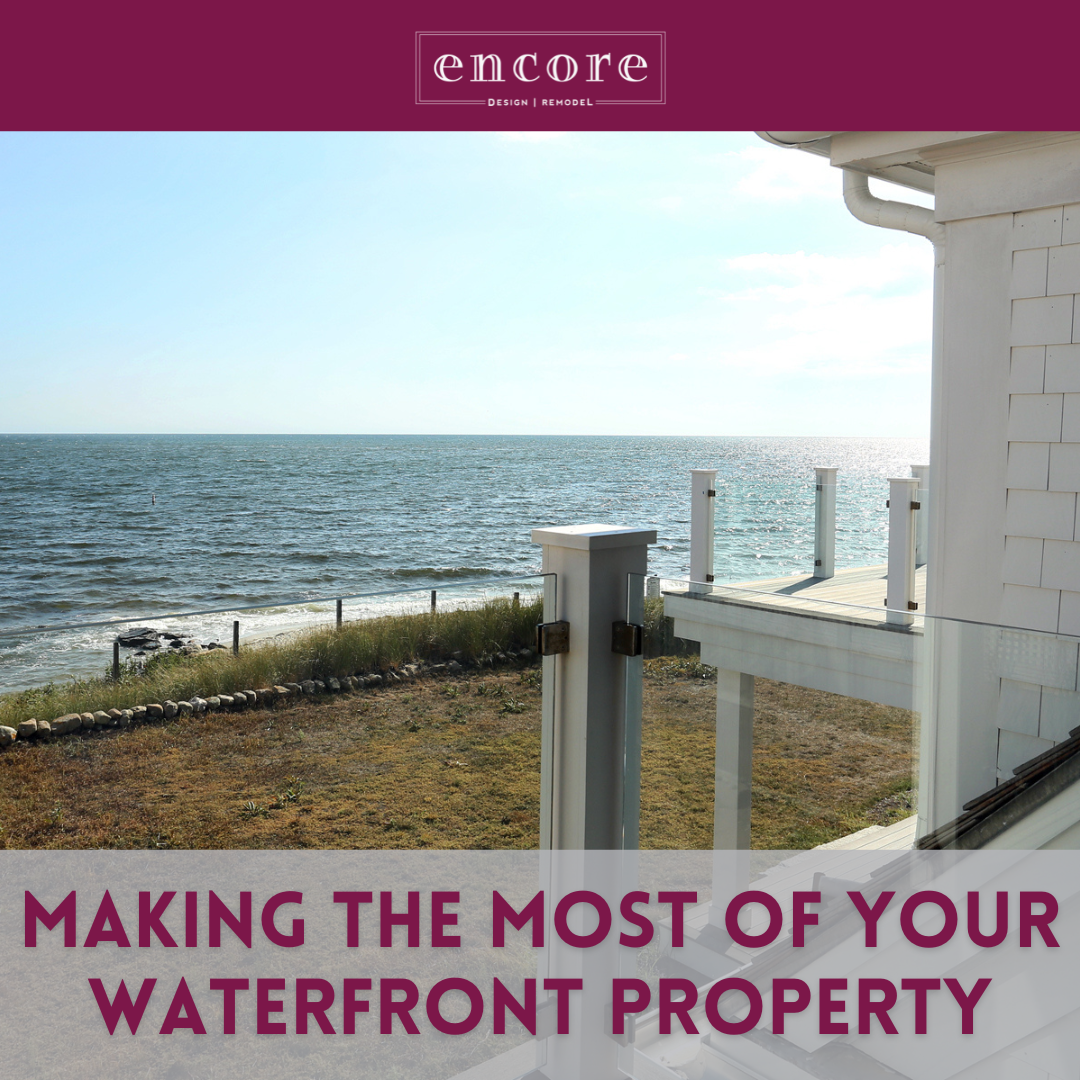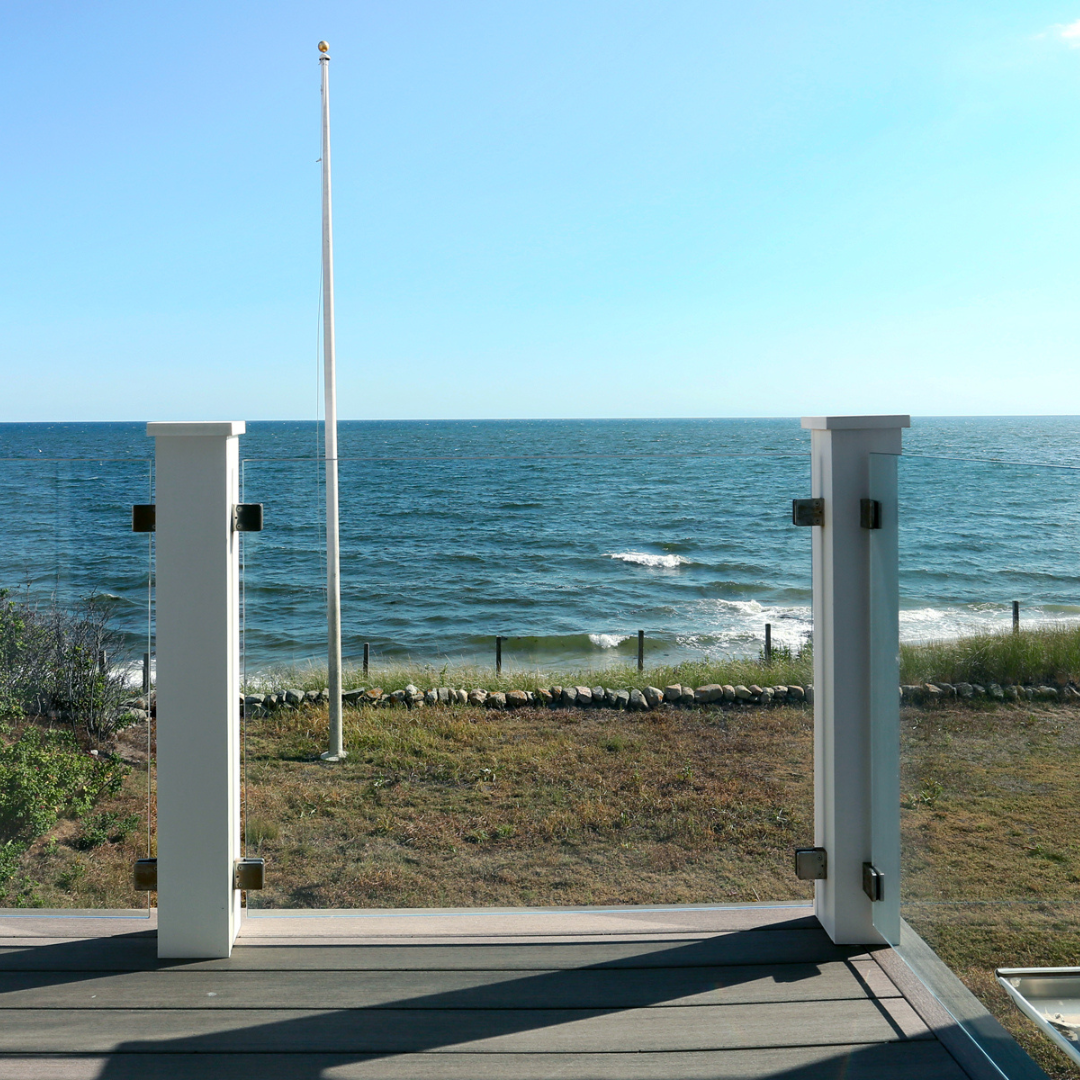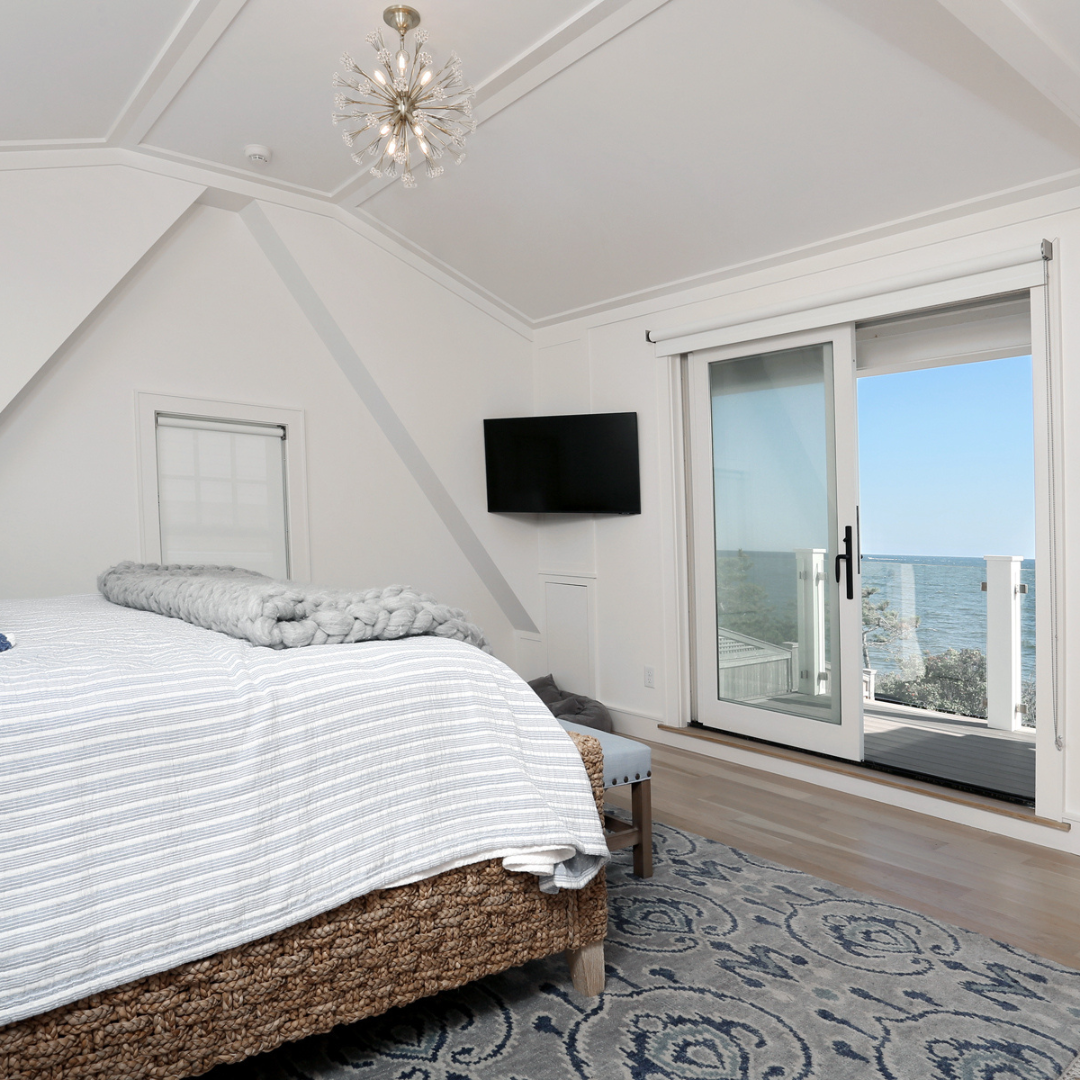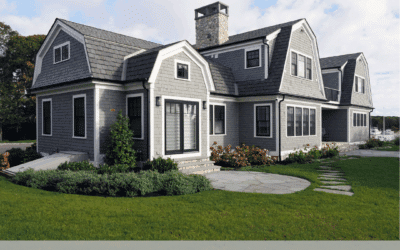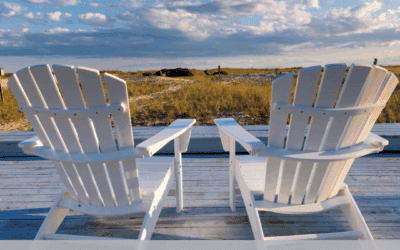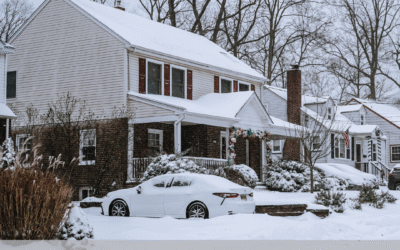What You Need to Know About Building a Coastal Home
How can I protect my coastal home from harsh weather and the elements?
Use smart design strategies like elevated foundations, storm-rated windows, and durable materials that can handle salt air, wind, and moisture.
What materials work best for coastal homes?
Fiber cement siding, composite decking, metal roofing, and impact-rated windows are top choices for long-lasting performance.
How can I create outdoor spaces that are both functional and coastal-ready?
Design with screened porches, elevated decks, outdoor showers, and marine-grade kitchens that enhance outdoor living while withstanding the environment.
What should I know about building in flood zones or near wetlands in Cape Cod?
Be aware of FEMA guidelines, local building codes, and environmental regulations. Permits and approvals are often required from multiple agencies.
What are the most important things to consider when building or renovating by the water?
Prioritize durability, compliance with coastal codes, and thoughtful design to make your investment secure and enjoyable for years to come
If you’re lucky enough to live on the coast, or you’re planning to, then you already know there’s nothing quite like waking up to a waterfront view. But as beautiful as it is, coastal living also comes with unique challenges. From salty air and strong winds to strict building regulations, your property needs to be designed to stand up to it all.
In this post, we’ll walk through some key design and construction tips to help you get the most out of your waterfront property, especially if you’re building or remodeling in Cape Cod or other New England shoreline areas.
Coastal Homes Aren’t Like the Rest, and That’s a Good Thing
Waterfront homes deal with a lot more than just pretty views. Salt air, stormy weather, and rising tides can wear down materials faster than inland homes.
That’s why coastal construction often means going beyond the basics. Things like elevated foundations, impact-rated windows, and FEMA flood zone compliance aren’t just recommendations, they’re often required.
💡Pro Tip: Before starting any design or renovation project, check your property’s flood zone. It can affect everything from the kind of foundation you’ll need to how much you’ll pay in insurance.
Choose Materials That Can Take a Beating and Still Look Good
Not all materials are created equal when it comes to salt, sun, and sea breezes. Here’s what we often recommend:
- Siding: Go with fiber cement, vinyl rated for coastal use, or even cedar shingles for that classic Cape Cod look
- Roofing: Metal roofs or high-wind shingles are worth the investment
- Windows & Doors: Make sure they’re impact-rated and use corrosion-resistant hardware
- Decking: Composite materials or pressure-treated wood work best by the water
These upgrades may cost a little more upfront, but they’ll save you serious time and money down the road.
Outdoor Spaces That Are Built to Be Lived In
Let’s face it. If you’re living on the coast, you’re going to want to spend time outside. But beach life also brings sand, sun, and storms, so your outdoor living spaces need to be both inviting and tough.
Some of our favorite coastal-friendly features:
- Screened-in porches that block bugs and let in breezes
- Elevated decks to keep you high and dry, even during a storm surge
- Outdoor showers or rinse-off areas to handle sandy feet and salty dogs
- Built-in grills or outdoor kitchens with marine-grade finishes
These are the little luxuries that make coastal living feel effortless, and they’ll definitely boost your home’s value too.
Know the Rules, Especially in Cape Cod
Cape Cod is one of the most beautiful places to build a coastal home, but it also comes with some of the strictest environmental and zoning regulations in the country.
You may need approvals from:
-
The local building department
-
Conservation commissions
-
FEMA (especially in flood zones)
-
State coastal management offices
Encore understands the local process, helping you avoid costly missteps and save months of delays. Your coastal dream home stays on track from start to finish.
FAQs
1. What’s the best siding for coastal homes?
Fiber cement is a top choice, but vinyl and cedar shingles (with the right treatment) also hold up well near saltwater.
2. Can I build a house on my Cape Cod property if it’s in a flood zone?
Yes, but you’ll need to meet specific elevation and building code requirements based on FEMA flood maps.
3. Are permits really that different for coastal properties?
Absolutely. Especially near wetlands or conservation land, permitting can be much more complex than standard builds.
4. What about outdoor furniture and finishes, what lasts?
Go for teak, aluminum, or resin wicker. And use stainless steel or marine-grade hardware to avoid rust.
5. Is it worth it to hire a contractor who specializes in coastal homes?
Yes. Coastal construction requires deep knowledge of materials, environmental factors, and local regulations. Encore Construction has years of experience building and remodeling homes in Cape Cod bringing together thoughtful design, permitting expertise, and lasting craftsmanship tailored to coastal living.
Key Takeaways
-
Coastal homes need to be designed for moisture, wind, and salt exposure.
-
Materials matter, so invest in options that are made to last.
-
Outdoor living is essential, but it needs to be tough too.
-
Regulations in Cape Cod are strict, so get expert help to navigate them.
-
A great design today will save you money and headaches tomorrow.
Thinking about building or renovating your coastal home in Cape Cod?
Let Encore Construction help you design a space that’s made to last and built to love, inside and out.
Ready to bring your waterfront vision to life? Request a custom quote and start planning your coastal home with confidence.

